If your eyes always feel dry, irritated, or tired, you may have a common condition called dry eye disease. Millions of adults in the United States suffer from chronic dry eyes, which occurs when inadequate tear production or excessive evaporation upsets the balance of the tears on the eye’s surface.
Dryness disrupts healthy vision and makes wearing contact lenses challenging. If you have long-term issues with dry eyes, you may be wondering whether pursuing LASIK surgery for nearsightedness, farsightedness, or astigmatism is wise or risky. Keep reading to learn if you should consider LASIK if you have dry eyes!
What is Dry Eye?
Dry eye is a common condition where your eyes do not produce enough tears to stay lubricated. It can cause irritating symptoms like stinging, burning, watery eyes, blurry vision, and light sensitivity.
Dry eye typically occurs when your eyes do not make enough high-quality tears or when the tears evaporate too quickly. Tears help nourish, lubricate, and protect your eyes.
They are made up of three layers: oil, water, and mucus. Dry eyes disrupt this delicate balance, leaving the eye’s surface inflamed and compromised.
What is LASIK?
LASIK is a type of refractive eye surgery that can help reduce your dependence on visual aids like glasses and contact lenses. During the procedure, your LASIK surgeon creates a thin flap on the outer layer of the cornea and uses a laser to reshape the inner corneal tissue, altering its refractive power.
This helps reduce dependency on glasses or contacts by improving visual acuity. The flap then lays back into place and adheres without stitches as the eye heals.
LASIK is a quick procedure and only takes about ten to fifteen minutes per eye. However, not everyone is a good candidate for LASIK.
It is essential to be qualified as a good candidate for LASIK to have the best possible vision outcome and for the procedure to be safe.
Can I Be a Candidate for LASIK if I Have Dry Eye?
Having dry eyes before LASIK can increase the risk of complications and unsatisfactory visual outcomes. LASIK can also worsen or cause dry eye since it can affect the corneal nerves that signal tear production.
However, this does not necessarily ruin your chances of being a good LASIK candidate. Not everyone with dry eyes will be disqualified as a candidate for this procedure.
During your LASIK consultation, your eye doctor will conduct a comprehensive exam to determine if your eyes are healthy enough for LASIK, including an analysis of tear production and the health of your cornea. Mild dry eyes can often be well-managed with treatments like artificial tears before and after surgery.
More severe dry eye may make you ineligible or require treatment first before clearing you for LASIK. To get helpful advice on whether dry eyes may prevent you from getting LASIK surgery, book a LASIK consultation with your eye doctor at Colorado Eye Consultants.
What Makes Someone a Good Candidate for LASIK?
The only way to know if you are a good candidate is to have a LASIK consultation. So what makes someone a strong candidate for LASIK surgery?
Typically, suitable patients will display these qualities:
- Stable vision prescription without fluctuations in the last year
- Healthy corneas that show no signs of infection, scarring, or thinning
- Realistic expectations of outcomes
- Willingness to follow strict post-op care instructions
- Be over the age of eighteen
The decision requires an honest conversation with your eye doctor regarding your specific eye health and goals. They can help determine if LASIK is right for you even if you have dry eye issues.
With advances in surgical techniques and dry eye treatments, having this condition does not necessarily prohibit you from the potential benefits of vision correction surgery.
Do you have dry eye and want to learn if LASIK may be right for you? Schedule an appointment at Colorado Eye Consultants in Littleton, CO, today!

